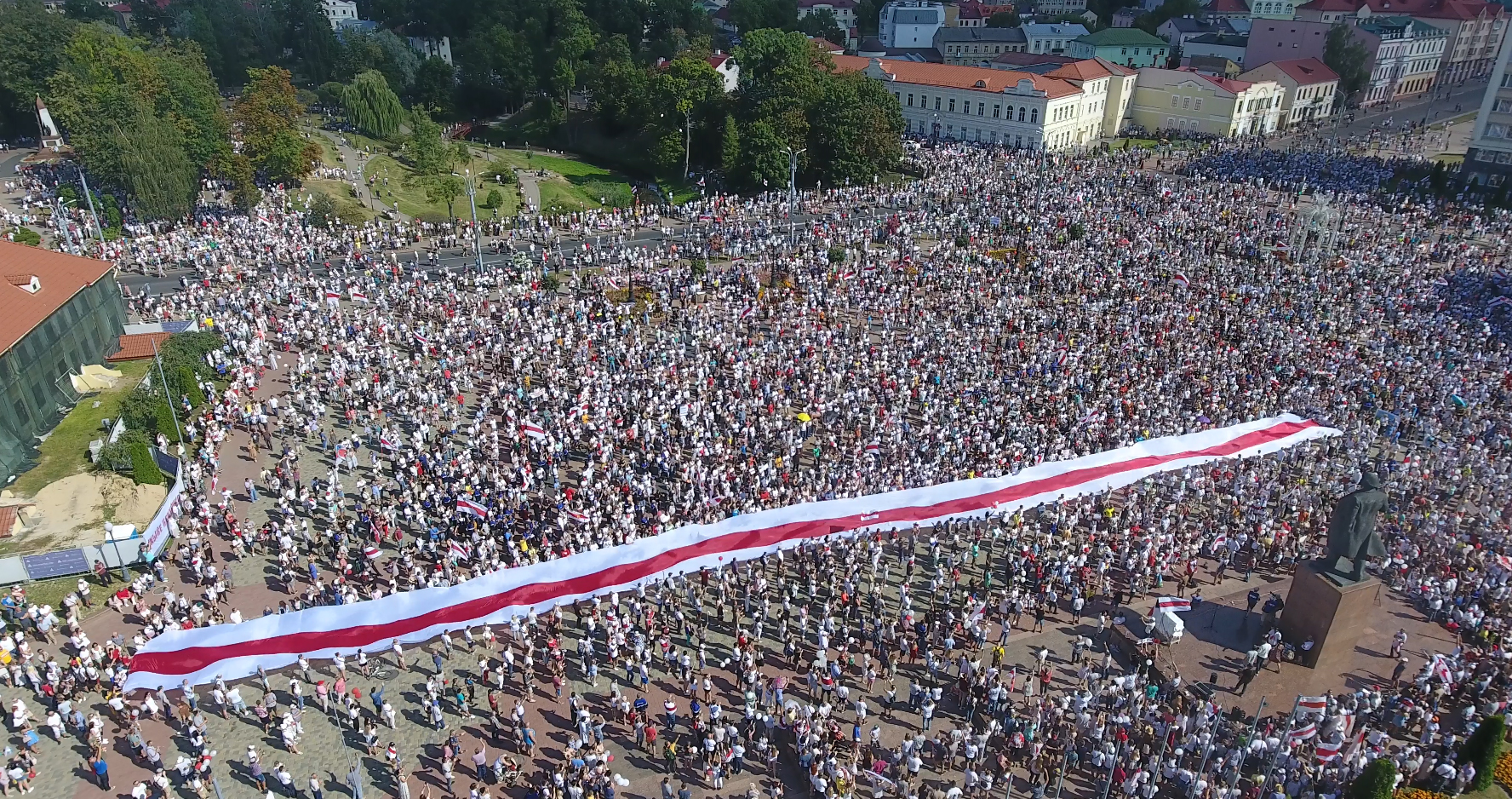How Workers Went On Strike In Hrodna in 1991 and Achieved Their Goal
- 12.04.2021, 10:38
- 1,666
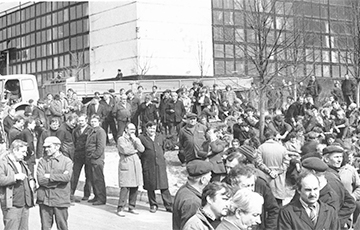
Thirty years ago, several hundred workers blocked a street in the area of a car assembly plant.
Hrodna. Early April 1991. Several hundred workers blocked Kurchatava Street in the area of the auto-assembly plant. People in overalls were on the roadway, on fences, on sidewalks. The leadership of the plant, city, region is here too.
It was a strike.
For the first time in the entire existence of the USSR, the Hrodna workers came out with their demands. Nobody expected such a turn.
Anatol Khatsko told about the events of 30 years ago for hrodna.life. Anatol was one of the leaders of the strike in 1991. A highly skilled worker, adjuster of the 6th grade. The successor of the labor dynasty. Anatol's father worked at the auto units plant as a senior foreman.
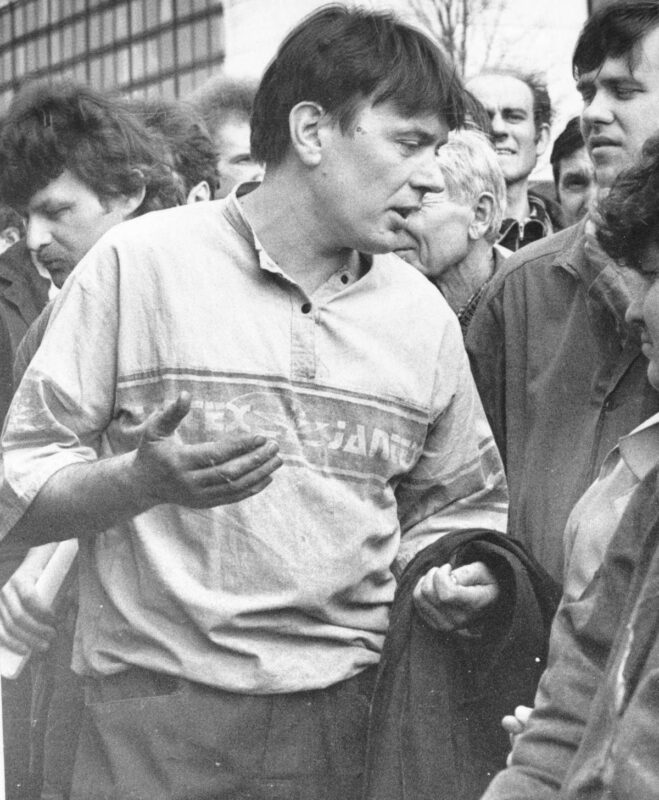
How it all began
"Any demonstration is a spark, a flash," says Khatsko. "Very good reasons are needed for people to take to the streets."
By April 1991, there were enough reasons. Over the past 10 years, the country's leadership has changed three times, each time redefining the course of development. The economy was dying. Perestroika and glasnost added drama to the picture of the collapse of the Soviet Union.
The last straw for the Hrodna workers was the price increase announced by the government.
The price of beef increased 4 times, bread and milk rose 3 times, school meals - 2.5 times. The authorities promised to carry out "proactive compensation" in advance. At the auto units plant, such payments were not made.
Strike trigger - monetary reform
The rise in price in April 1991 was the second stage of the union financial reform. At the first, money was exchanged. All 50- and 100-ruble bills of the 1961 model had to be exchanged for money of the new model in three days. One person could exchange no more than 1,000 rubles. The rest of the savings were canceled.
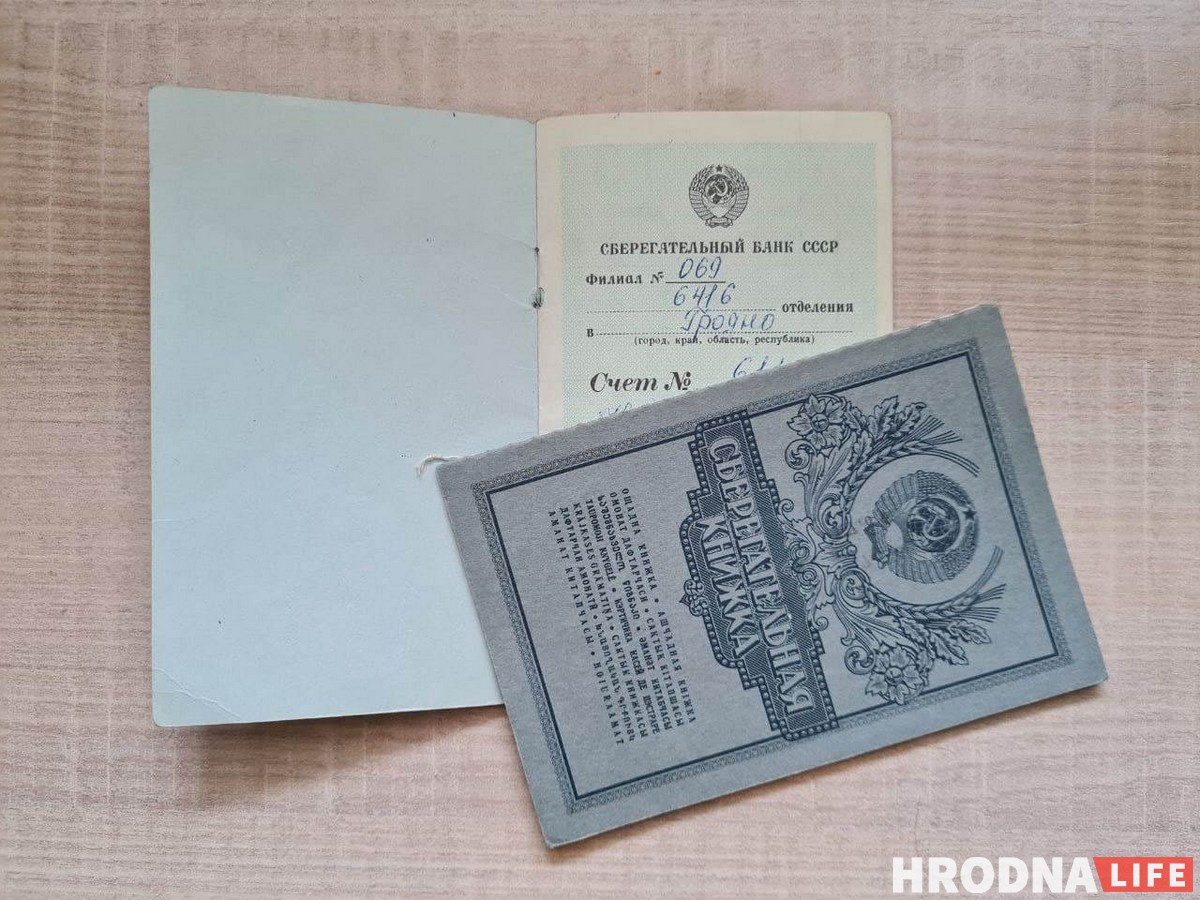
The protests started out as economic. In Hrodna, several thousand went on strike, in Minsk, from 10 to 30 thousand; Salihorsk, Orsha, Lida joined.
“The strike started at the auto units plant because of unpaid compensation. People refused to work and left the workshops," Anatol Khatsko recalls. The workers summoned the management for a conversation. "And the street was already blocked because of the boorish answer. Denationalization and privatization had already begun then. The workers mentioned that it is necessary to think about our plant too. The director sharply replied: “This will not happen with me. There must be one owner."
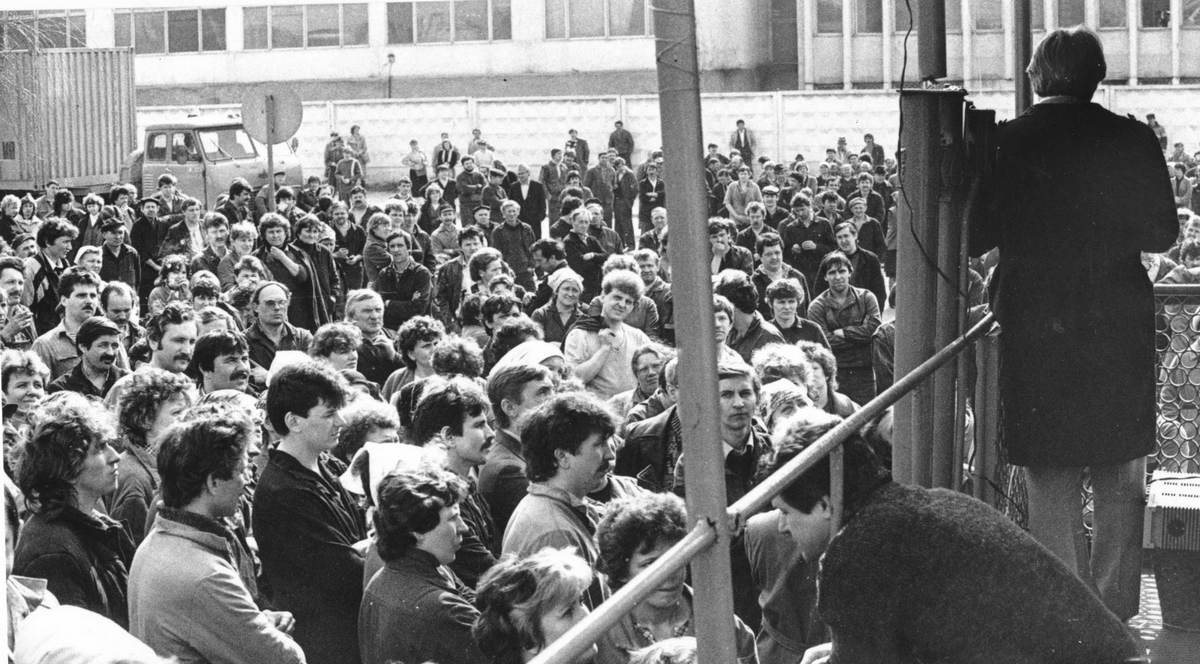
The people understood - we must save ourselves
So the strikers immediately moved from economic demands to political ones - the situation developed rapidly. “People opened the gates, went out into the street, and blocked the road. Everyone understood that now this is the only way to draw attention to their demands,” says Khatsko.
According to him, the workers were already ready to formulate and express their proposals. “Gorbachev's glasnost has done its job."
- We read a lot, watched TV. The more or less independent press has already appeared. Information on Kurapaty was opened. Many people went to a meeting with Zianon Pazniak.
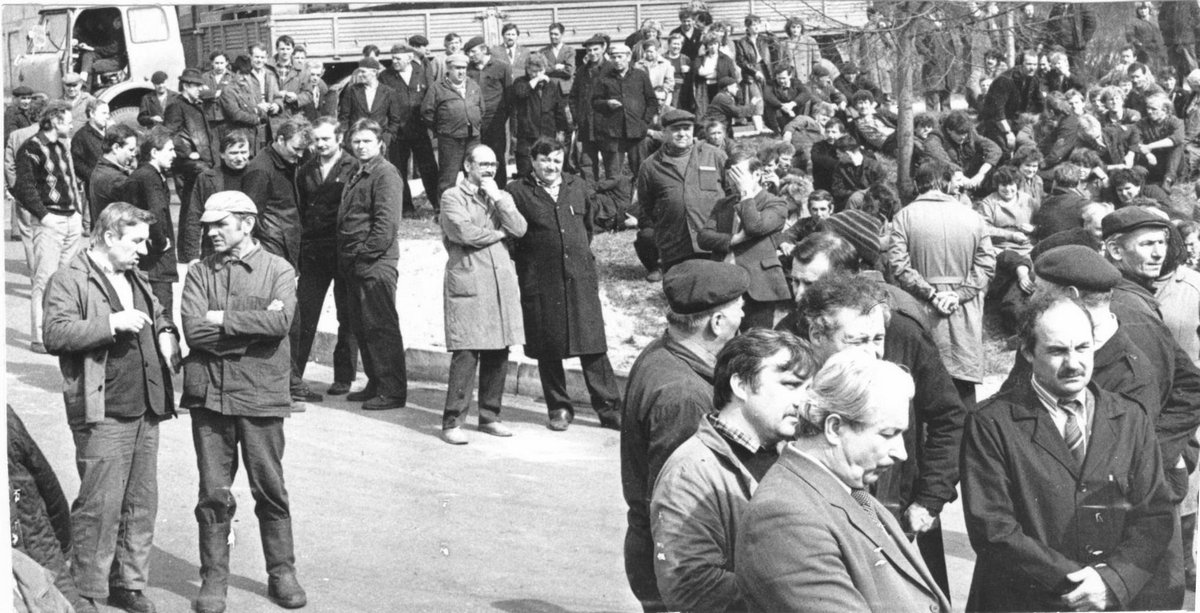
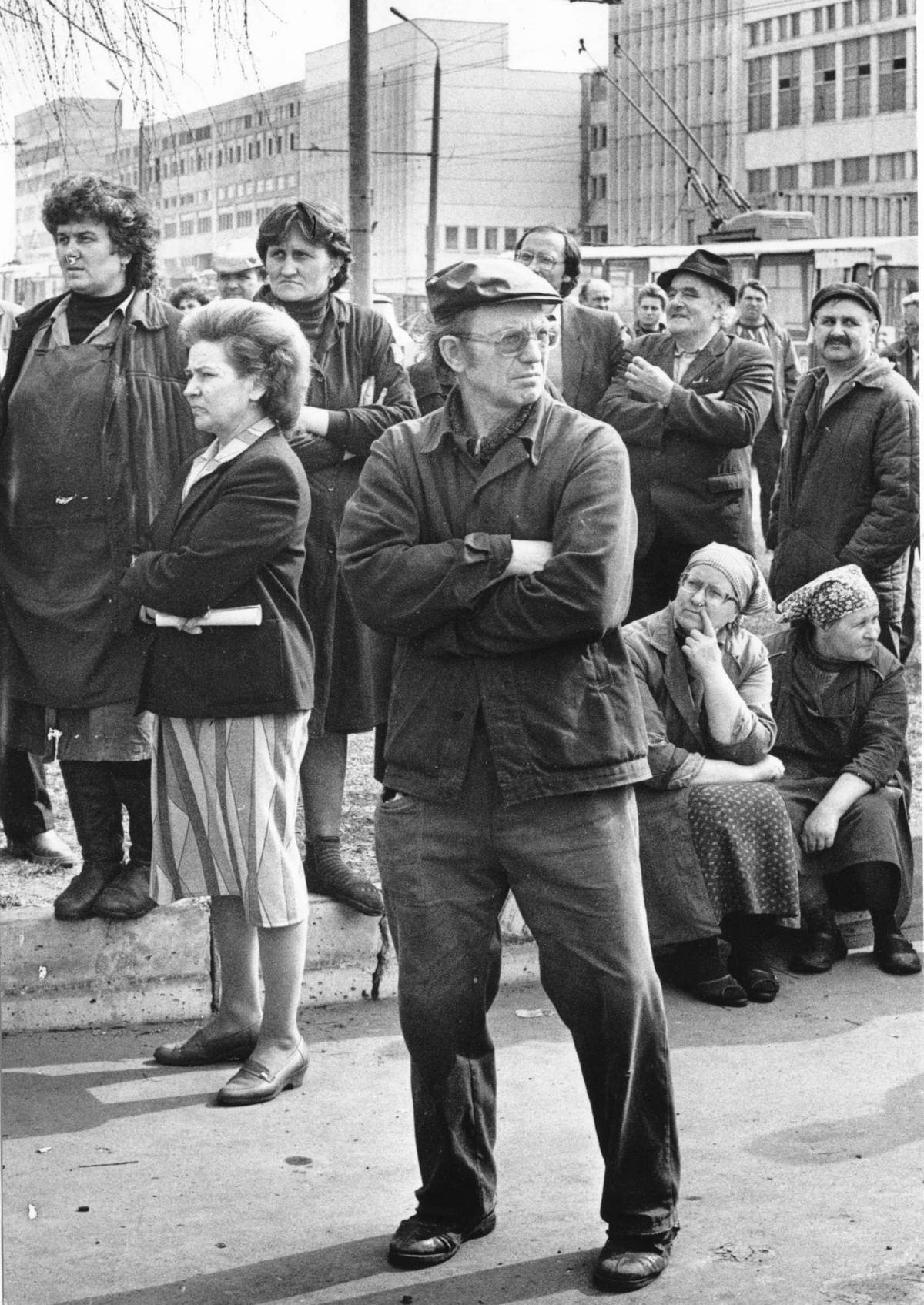
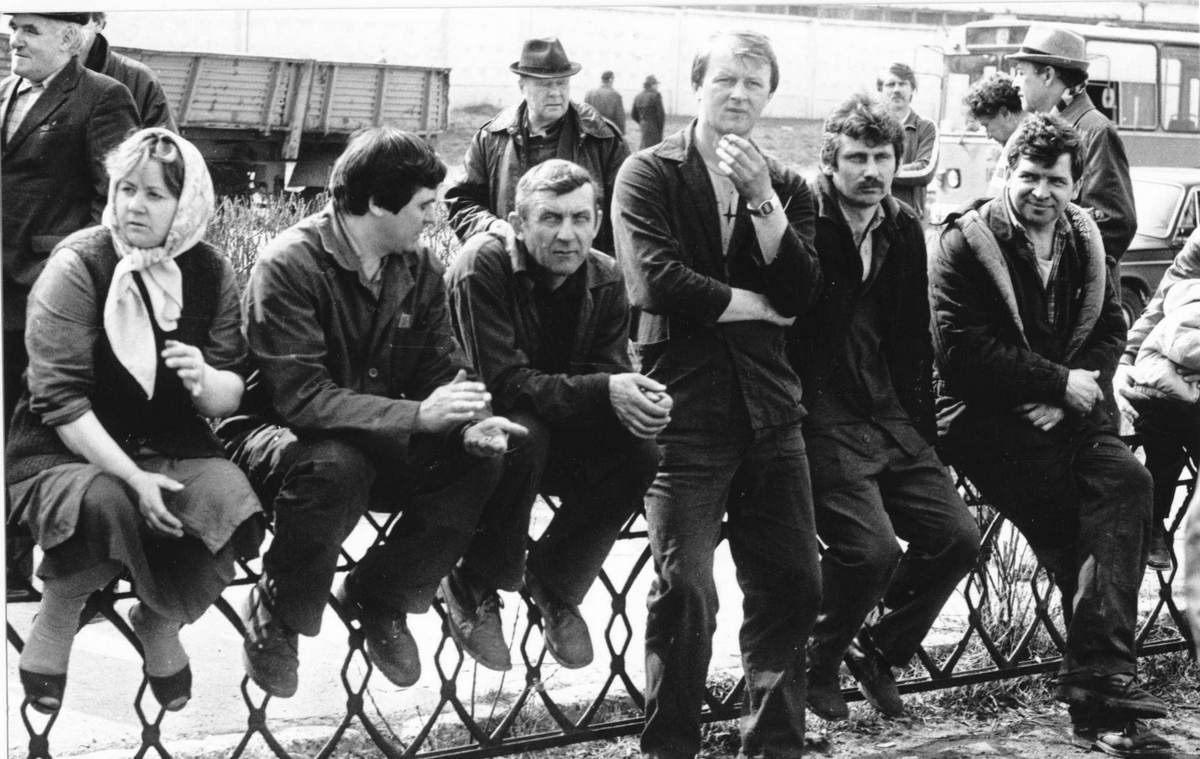
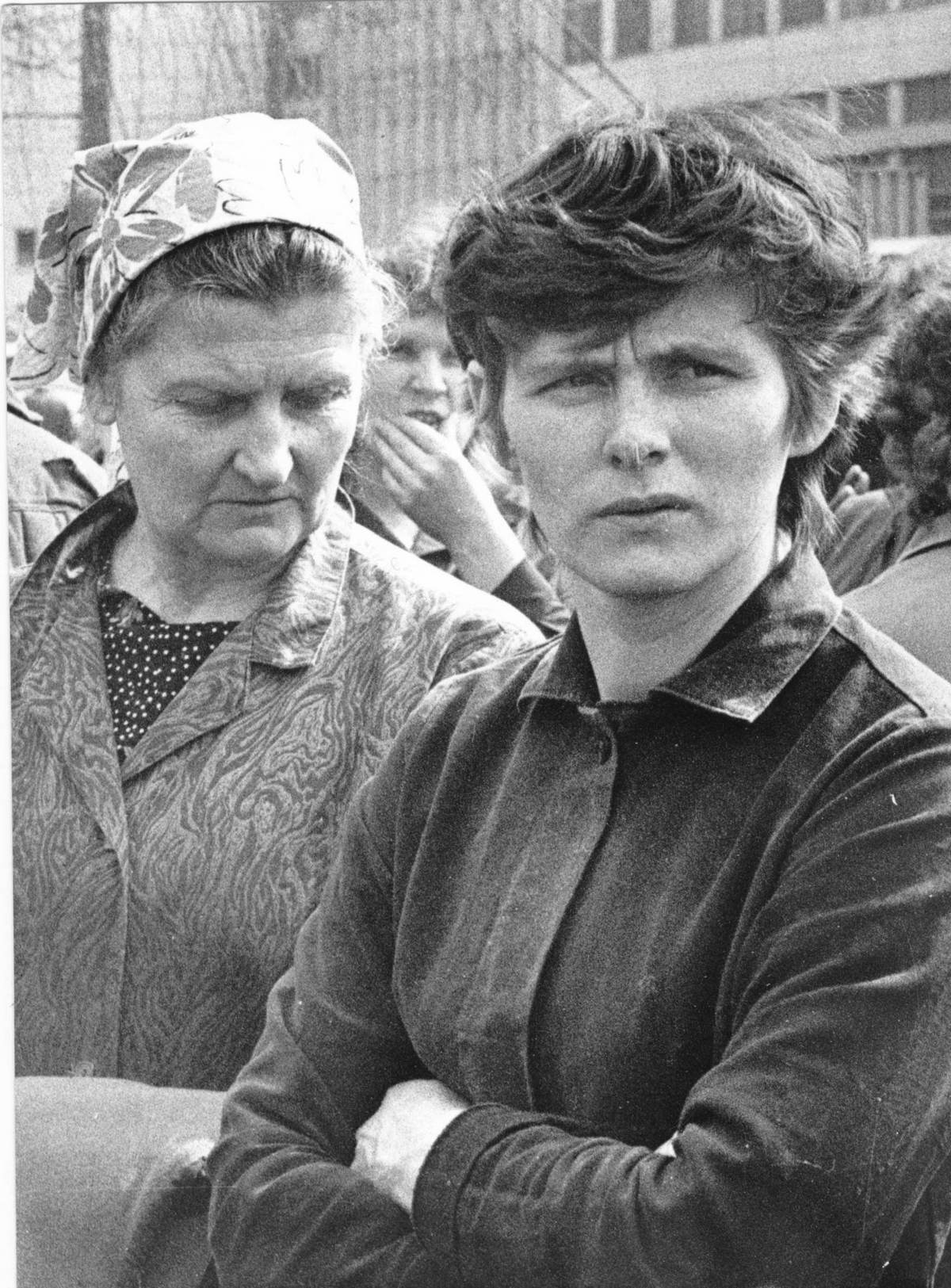
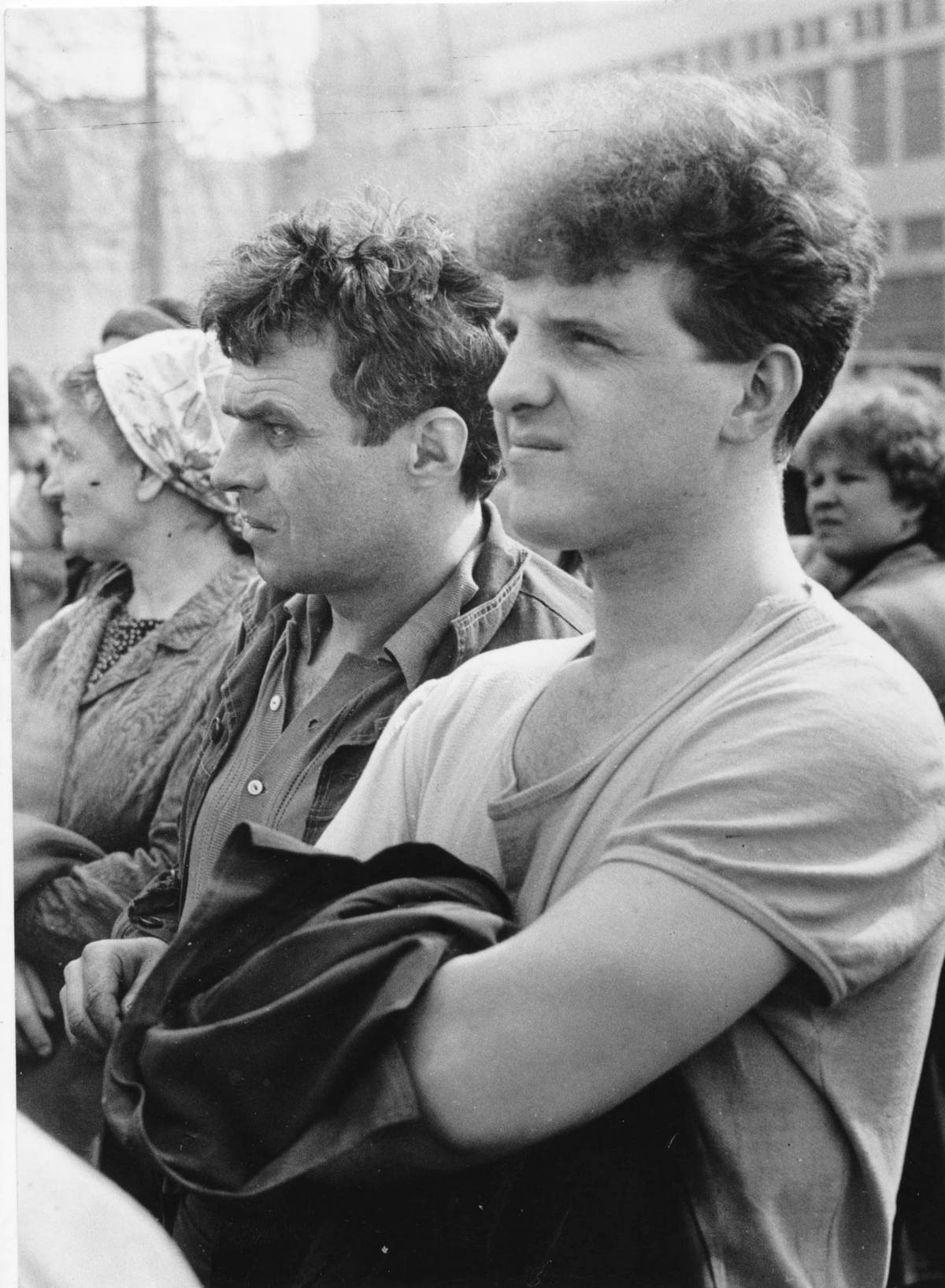
Another prerequisite for the 1991 strike was the fact that people realized that they should not rely only on the state. We need to pull ourselves out of the difficult economic situation by ourselves. The factory workers from the auto units plant, like many Hrodna residents at that time, began to "shuttle" - on weekends they brought goods, which were given "on barter" instead of wages, to Poland and Lithuania.
“As the people helped the state then, no one would have helped. They took out all the illiquid assets that were in the warehouses. From nails to underwear. Gold, TVs, electrical appliances. They brought currency from there. The state could not organize trade and sales, but people could. They saved themselves and saved the state,” Anatol Khatsko recalls.
In the 90s, at the consumer goods site of the auto units plant, children's bicycles "Penguin" and "Neman" were produced. They were exported to all countries of the Council for Mutual Economic Assistance [CMEA] and even to Cuba. It was a stroke of luck to receive a portion of my salary in bicycles. Hrodna bicycles were sold well at the border bazaars in Poland and Lithuania.
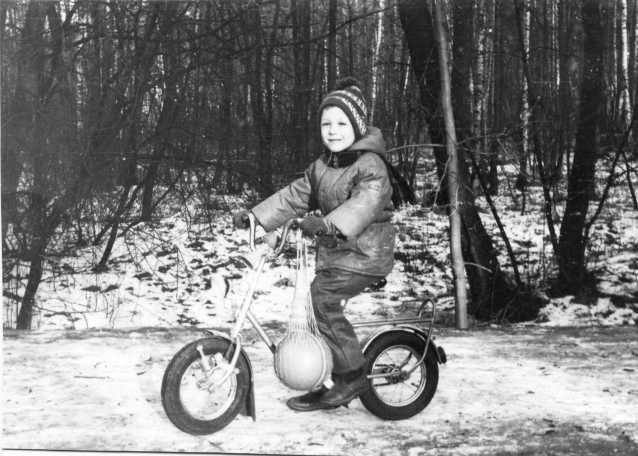
In the early 1990s, everything was according to coupons, tickets, and consumer cards. In the USSR, they tried to create a distribution system that would provide everyone with the necessary amount of goods and products. But the goods and products themselves were sorely lacking.
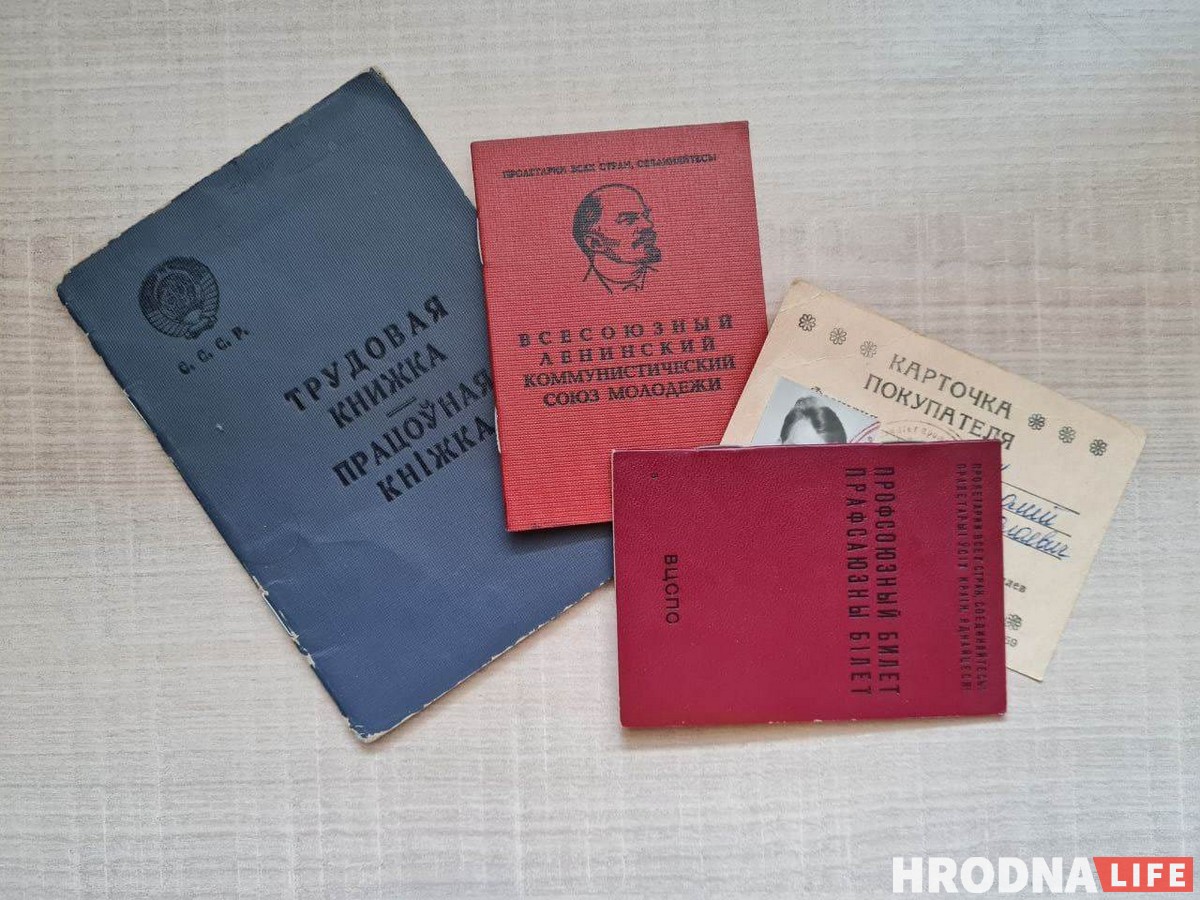
Were ready to stand further
“The plant stood for several hours and was ready to stand further,” says Khatsko. "Our enterprise is very old. Already dynasties were formed, traditions were passed on. People supported the strike. Before the start of the second shift, workers called me, saying that they were also ready to go out into the street as a sign of solidarity with the first. But this was no longer necessary. We were heard."
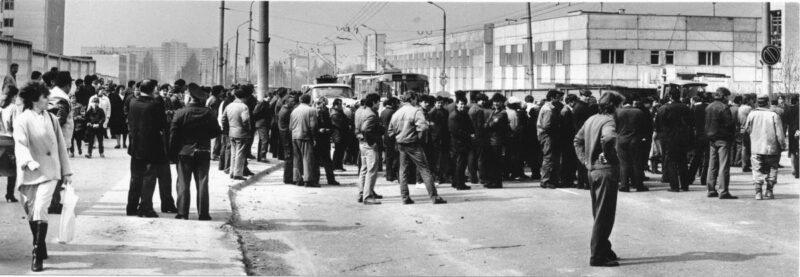
The result of the strike was the establishment of the strike committee of the enterprise. It includes representatives of all divisions of the plant. The strike committee immediately set deadlines for payment of compensation and wages, decided to hold an extraordinary trade union conference, expressed distrust of the management of the plant.
At the trade union conference, the entire strike committee was elected to the trade union committee of the enterprise. Anatol Khatsko was elected chairman.
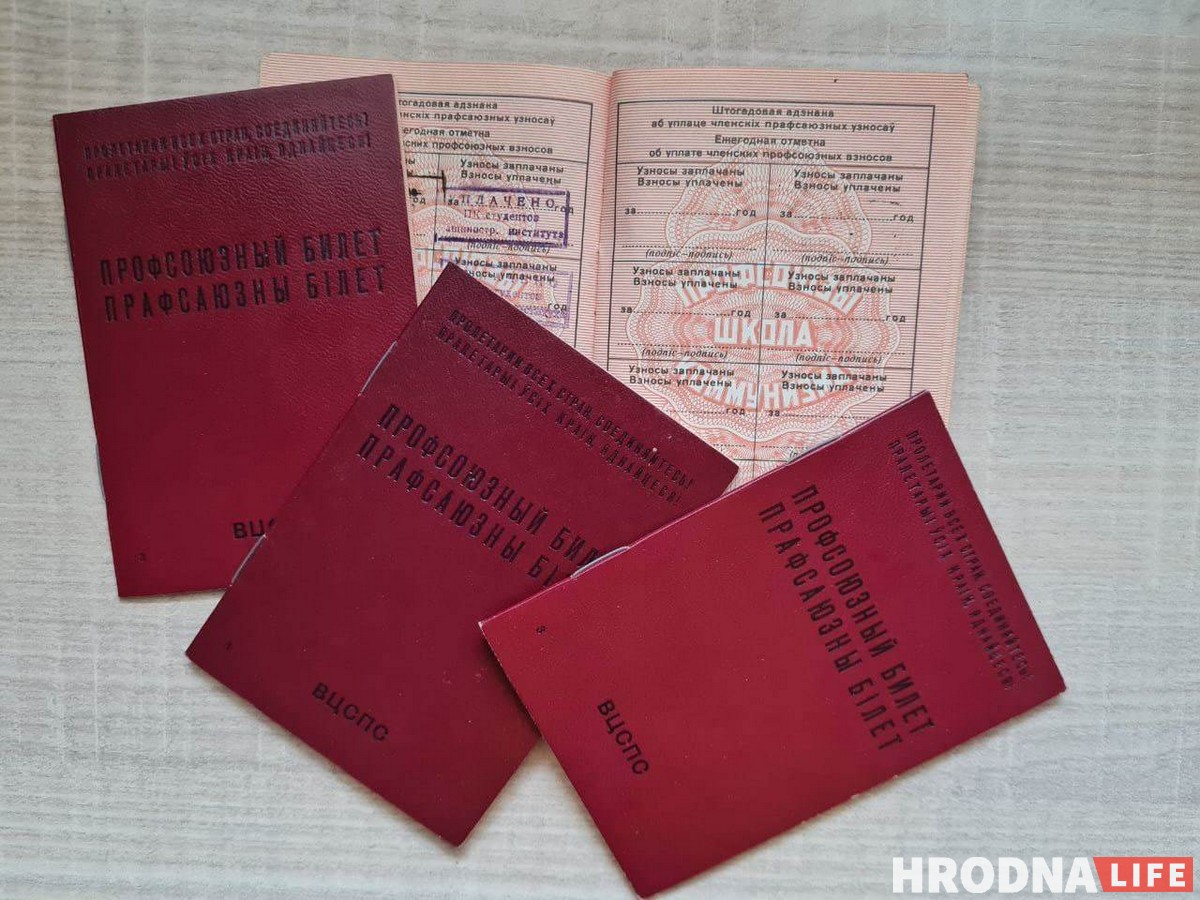
“At that time, unions were more involved in distributing deficits. They divided - who gets apartments, who gets dormitories, who gets furniture or products from the subsidiary farm. We immediately said that the trade union will deal with the main issues - wages and labor safety,” said Khatsko.
Very soon, political demands were added to the economic demands.
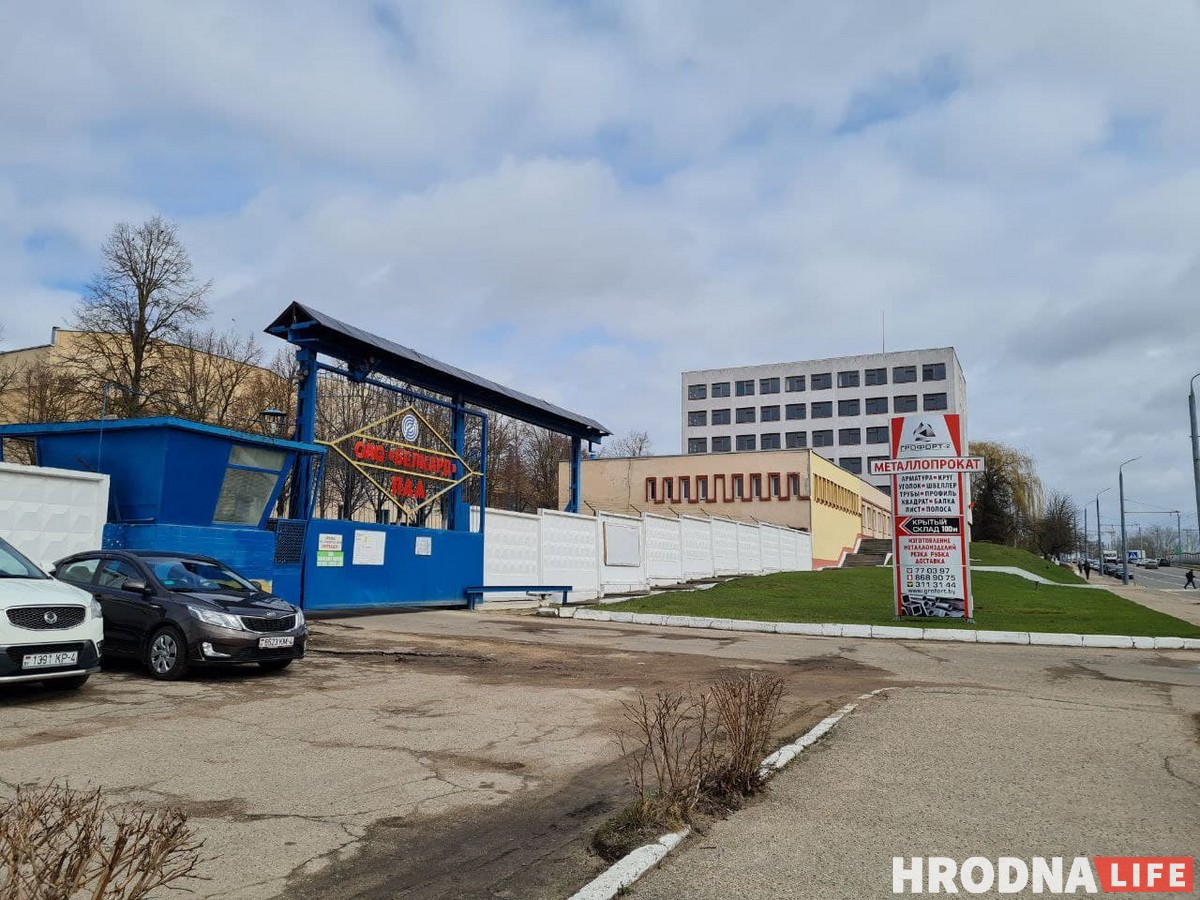
“We were the first in the city to raise the issue of moving the party away from production, taking the party committee out of the checkpoint. Together with the deputy director for personnel, they described the property of the party committee. I sealed the office with my trade union seal,” Khatsko says.
The city also "swayed" after the strike at the auto units. The experience of talking with the authorities on the street was repeated in 1993. In winter, workers came to the square because there was no heating in the shops and the management could not solve this problem.
The chairman of the regional executive committee Siamion Domash then gathered heads of enterprises and officials for an unscheduled meeting. Representatives of the factories were also invited: Anatol Khatsko from the auto units plant, Aliaksandr Harkou from Azot, and Barys Halubovich from Turning Chucks.
“They tried to put pressure on us, but it was not scary. There was a whole square behind us,” says Anatol. There were no arrests or repressions against the strikers and participants of the rally either. “There were also policemen there. Both in form and “in raincoats.” But no one even thought that they could be arrested for the rally.”
Later, when in 2001 Siamion Domash was nominated for the presidential elections, he invited Anatol Khatsko to become his confidant.
"Then there was freedom"
“Prices then “rolled back,” but they did not accept the Declaration of Independence - they were afraid,” Aliaksandr Milinkevich recalls about the results of the 1991 strikes. "Nobody understood how to make reforms."
“At that time, we removed practically all the problems at the plant,” says Anatol Khatsko. "We cleaned the plant from the party committee, reduced unnecessary managers, and resolved issues related to the collective agreement. People began to understand that if the trade union committee gave the go-ahead, then this is the law. The employer has no right to violate it."
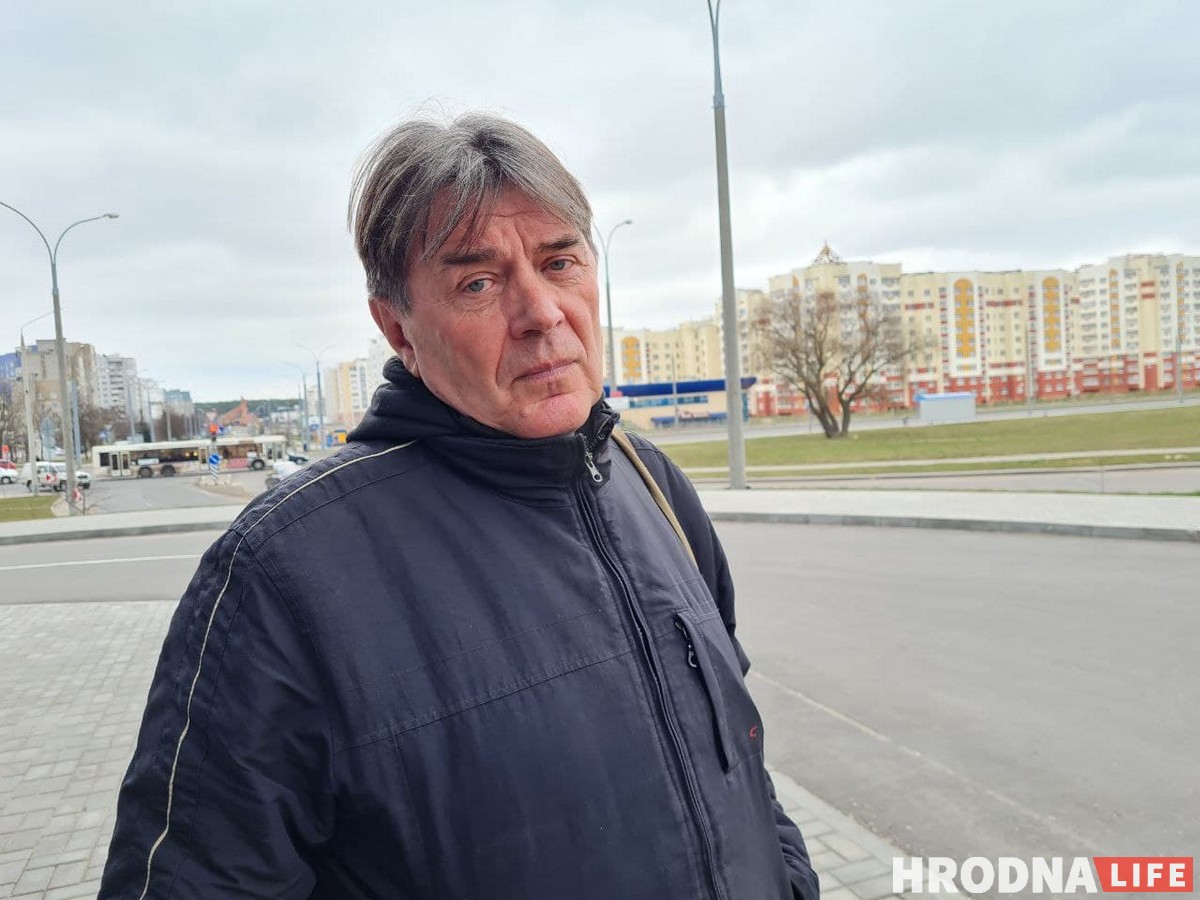
The experience of the strike, according to him, for a long time remained an “instrument of influence” on the management of the plant. The management knew that if you didn’t agree amicably, people would go out again.
